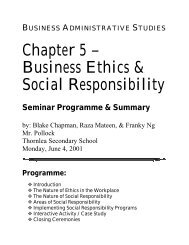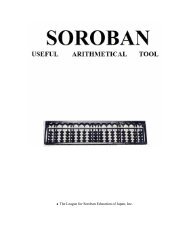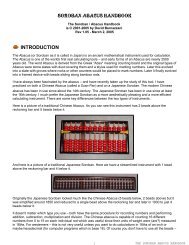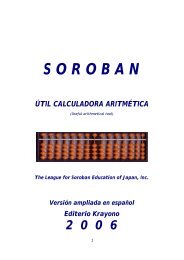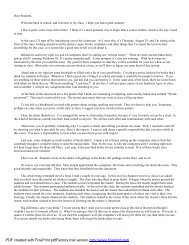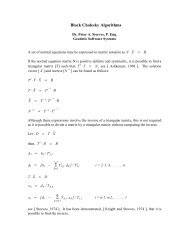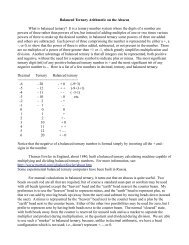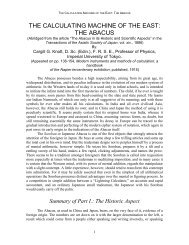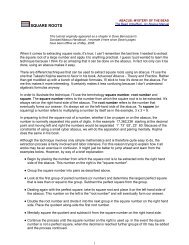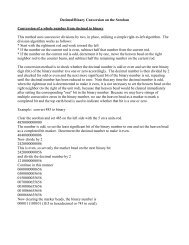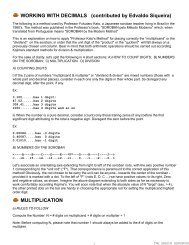Sexing Political Identities-Nationalism as Heterosexism.pdf
Sexing Political Identities-Nationalism as Heterosexism.pdf
Sexing Political Identities-Nationalism as Heterosexism.pdf
Create successful ePaper yourself
Turn your PDF publications into a flip-book with our unique Google optimized e-Paper software.
In the context of Iran’s nationalist movement against ‘Westoxication,’<br />
Nayereh Tohidi notes (1994: 127) that a ‘woman’s failure to conform to the<br />
traditional norms could be labeled <strong>as</strong> renunciation of indigenous values and<br />
loss of cultural identity. She could be seen <strong>as</strong> complying with the forces of<br />
“Western imperialists”.’ Gender issues were also central to political struggles<br />
in Afghanistan, which additionally illuminates geopolitical alignments.<br />
Valentine Moghadam observes that the Saur Revolution in 1978 w<strong>as</strong><br />
committed to transforming patriarchal and tribal authority but encountered<br />
especially erce resistance in relation to improving the lives of women, who<br />
were denied even literacy. In the civil war that followed, mujahidin forces<br />
(supported not le<strong>as</strong>t by the United States) unab<strong>as</strong>hedly proclaimed patriarchal<br />
power. Although mujahidin factions fought among themselves, ‘the men<br />
all agreed on the question of women. Thus the very rst order of the new<br />
government {in 1992} w<strong>as</strong> that all women should wear veils’ (Moghadam<br />
1994a: 105).<br />
We observe manipulation of gender ideology whenever external intervention<br />
is justied by reference to a ‘civilizing mission’ that involves ‘saving’<br />
women from the oppression of their ‘own’ men. As an extensive literature<br />
now documents, European colonizers drew upon notions of bourgeois<br />
respectability to legitimate their global domination of ‘others.’ This respectability<br />
relied upon heterosexist <strong>as</strong> well <strong>as</strong> racist and cl<strong>as</strong>sist commitments<br />
(especially, Mosse 1985; McClintock 1995). <strong>Identities</strong> and practices at<br />
variance with Victorian codes of feminine respectability and m<strong>as</strong>culine<br />
decency were singled out <strong>as</strong> demonstrating the ‘backwardness’ of indigenous<br />
peoples. Lacking respectability, these peoples had no claim to respect and the<br />
equality of relations it entails: foreign domination is then not only justied<br />
but re-presented <strong>as</strong> a project of liberation.<br />
As Partha Chatterjee notes in regard to India:<br />
By <strong>as</strong>suming a position of sympathy with the unfree and oppressed womanhood<br />
of India, the colonial mind w<strong>as</strong> able to transform this gure of the Indian<br />
woman into a sign of the inherently oppressive and unfree nature of the entire<br />
cultural tradition of a country.<br />
(1989: 622)<br />
More recently, during the Gulf War the ‘oppression’ of Arab women (veiled,<br />
conned, unable to drive cars) w<strong>as</strong> contr<strong>as</strong>ted with the ‘independence’ of<br />
United States women (armed, at large, able to drive tanks), thus suggesting a<br />
‘civilizing’ tone to the war against Iraq. 17<br />
Women <strong>as</strong> Agents and <strong>Heterosexism</strong> <strong>as</strong> Ideology in <strong>Political</strong><br />
Identity Struggles<br />
In reality, women are not only symbols and their activities extend well<br />
beyond the private sphere. In contr<strong>as</strong>t to the stereotype of women <strong>as</strong> p<strong>as</strong>sive<br />
50 International Feminist Journal of Politics




